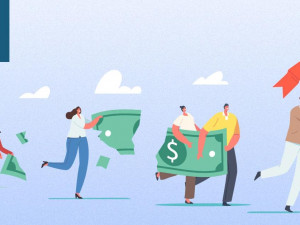
Chancellor starting to consider cuts
Morning mid-market rates – The majors
29th June: Highlights
- Reopening on schedule
- 600k NFP Pivotal
- BUBA Chief calls for ECB to begin taper.
Benefits bonanza coming to an end
As furlough ends, those who find themselves without a job will see the Government’s main benefit begin to be cut back to pre-Covid levels.
Those who were unable to retain their jobs at the start of the pandemic, or whose employers were unable to access the furlough scheme, will find themselves as the worst hit, post-recovery.
It is expected that the Government will provide support for those who fall victim to the withdrawal of support, but it is expected that the unemployment rate will start to rise.
The term falling behind the curve has become redundant, as the Bank of England ignores rising inflation.
However, as the economy levels out, and inflation continues to rise, the Chancellor and Bank of England Governor are going to have to put their heads together to plot how they retain the excellent start to the recovery but tighten support enough to get inflation under control.
The new Health Minister, Sajid Javid, in his first speech in his new role. Insisted that there is no reason for England to go beyond July 19th before restrictions are lifted.
While this will provide a lift to the population with the economy growing at well above the level that was expected, the economic effect will be minimal.
The pound still awaits some action from Central Banks but with the summer lull approaching, a continuation of the current range remains the most likely outcome.
Yesterday, it tried to rally towards its recent high at 1.3940 but was unable to sustain the rally, and it fell back to end almost unchanged at 1.3882.
Considering your next transfer? Log in to compare live quotes today.
Powell will wait until FOMC is certain
The predictions regarding the NFP are hovering around 600k new jobs. It seems that that is the benchmark for this month; bullish above 600k, bearish below.
There are analysts and investors who are still unable to fathom the delay in tapering Fed bond purchases. They believe that the economy is now set fair and the support and stimulus that has been provided is enough to recover from three Pandemics.
At the start of the pandemic, there were calls for banks to raise capital following the fallout from the financial crisis. Banks watched as their landlord clients told them that they couldn’t make payments on their real estate loans as their small business tenants were laying off staff and were unable to pay their rent.
It’s all about cash flow, they screamed, but now those tenants are trying to get on board the gravity train and add more assets while rates are so low and small businesses are making a rapid recovery.
Who financed this turnaround? Why bank shareholders, of course. They have seen slim pickings over the time of the Pandemic, but maybe this is the genesis of a new way for banks to survive. Slim down the balance sheet, avoid dividends, and trust in the power of Prayer.
So far so good, but the time may have come for President Biden to put away the Santa costume until the next time. He cannot intend to go through an entire term giving away cash, so at some point he is going to have to tell Ms. Yellen to turn off the spigot.
He will need to withdraw support gradually if he doesn’t want to run into stagnation, but the fact that his stimulus funding is still flowing through the economy should be encouraging.
The dollar index awaits a bit of action, like the rest of us. The assumption will be made if there is a 750k= NFP headline that the Fed will finally be forced to act.
Those who have grappled with advance guidance through three or even four Fed Chairman will know that they won’t move until the market has given up expecting them to.
The dollar index remains poised for another rally. That 750k rise in new jobs would certainly jolt the market, but without the Fed, the dollar will simply drift back to its current level.
Yesterday, the index reached a high of 92.01 but couldn’t hold on and it fell back to close at 91.89.
Buba head cites rising inflation as reason to tighten policy
Bundesbank President Jens Weidmann, the man who would be ECB President without the Merkel-von der Leyen axis, was back at his hawkish best yesterday, calling for the Central Bank to begin to taper bond purchases to combat inflation that is in danger of rising out of control.
Poor Jens didn’t get the memo. Rising prices are no longer the big bad wolf of the Eurozone.
All that needs to happen is for businesses in the region to buy each other’s goods, and all will be good. The posters advertising a number of Eastern European motor vehicles, now fitted with state-of-the-art diesel engines, are going up all over Cologne, Munich, and Hamburg.
A win on penalties tonight would make the Brexit era victory all the more sweet.
The people of the Eurozone are beginning to open their purses again, and this will add to rising prices as supply chains struggle to keep up with the release of pent-up demand.
Weidmann is a big saver. What he is struggling with is that the cask he is holding is devaluing as prices rise.
One thing Weidmann has noticed that bears out his concern is that petrol prices are rising at the retail levels as Germans and their neighbours across the region get their cars out of mothballs and begin to travel again, but strictly within their own borders.
Rather like swimming against the tide, Weidmann declared yesterday that inflation isn’t dead. It is actually not only not dead’ but is rising from its slumbers to particularly aggravate German Central bankers.
The euro is no help either, the belief that it should be nearer to 1.30 than 1.20 is merely wishful thinking. It is hard to imagine that Weidmann believes that it would be better to destroy all but Germany’s ability to export, simply to shave 50bp off the inflation rate.
Yesterday, the dollar maintained its unhealthy stranglehold on the single currency. It rallied to 1.1944 but fell back to close at 1.1924.

About Alan Hill
Alan has been involved in the FX market for more than 25 years and brings a wealth of experience to his content. His knowledge has been gained while trading through some of the most volatile periods of recent history. His commentary relies on an understanding of past events and how they will affect future market performance.”



